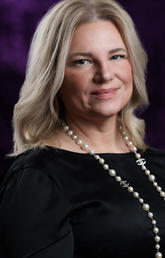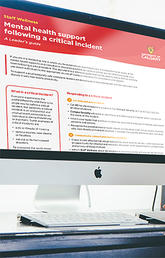In a fast-paced and interconnected world, effective communication is not just a skill, it’s a necessity.
A key factor in any successful interpersonal relationship — whether in the workplace or at home — is the ability to have both the easy conversations and the difficult ones. Navigating difficult conversations can be a formidable challenge, yet it is essential for fostering collaboration and achieving professional growth.
Interactions become even more complex as we navigate major points of transition in our careers like graduating and entering the workforce, being a leader and managing people, and career changes. These relationships become just as layered as any in our personal lives where family, friends and finances can all come with their own pitfalls.
Whether you’re facing a difficult colleague, addressing performance issues or dealing with sensitive topics, the ability to handle such conversations with grace and humility is a hallmark of a successful communicator.
“The skills I find most rewarding to develop are those skills that help in all our relationships — at work, and in our personal lives. Navigating tricky conversations is one of those skills,” says Gillian Rasmussen, BA'00, senior organizational development consultant with University of Calgary Human Resources.
“In every relationship, there will be situations where we want different things, when we misunderstand each other or get on each other’s nerves. Conflict, discord or other tricky situations will happen — and, when they do, they can be stressful. Conversations are tricky if they involve high emotions, differing perspectives, or delicate topics.”
Rasmussen, who hosted an online webinar on the importance of such “soft skills,” Navigating Tricky Conversations, as part of UFlourish 2023, offers some practical tips to help us all navigate these complex conversations with confidence and professionalism.
Tricky conversations are tricky for a reason
“Our brains evolved to keep us safe,” Rasmussen says, effectively meaning that our brains are wired to interpret psychological pain in the same way they interpret physical pain. The result of this is that, she says, “conversations where the outcome is unknown, where we might face rejection or be exposed to uncomfortable feelings like anger, sadness or embarrassment,” can be interpreted as threats by our brains. As a result, our mind and natural instincts can actually work against us during a tricky conversation.
“They might sound the alarm, causing us to go into fight, flight or freeze,” says Rasmussen. “They notice facts that support our own interpretations or opinion and discard facts that don’t align. They remember negative interactions much more clearly than positive experiences [which we call] negativity bias, and we can look for ways to justify ourselves [which is called] fundamental attribution error.
“Basically, our brains evolved to win arguments — which isn’t really want we want in navigating a tricky conversation.”
Have the conversation
One of the most common mistakes a person can have is avoiding the conversation altogether. Rasmussen suggests the stereotype that “Canadians are known for being pleasant and kind and courteous” can be detrimental if we use it as a reason to avoid a conversation that needs to happen.
“Not everything needs to be addressed, but, if the behaviour or issue is causing stress and harming the relationship, have the conversation,” she says. “For leaders, it is your job to give feedback and address issues. A conversation that is stilted and uncomfortable is better than one that never happened, but should have.”
Assume positive intent and avoid judgment
If you have identified a situation where a tricky conversation needs to occur, you need to exercise humility and empathy in how you think about the situation and the people involved.
“The conversation will go better if we give the other person the benefit of the doubt,” Rasmussen says. “This is hard, but critical. Your perspective is just one piece of the puzzle [and] there is a lot you don’t know, so assume the positive. If you don’t, your negative judgment will colour the interaction and make it even trickier.”
Figure out what you feel and why
"Clarity is kind,” says Brene Brown, an American researcher who's spent decades studying courage, vulnerability, shame and empathy. In other words, we all need to figure out what we really need to say, and what we want to happen.
“This takes reflection,” says Rasmussen. “It can be hard to correctly identify our feelings — even to ourselves.
“Many of us grew up learning there were some emotions were not safe to feel. If we don’t recognize our emotions, they can hijack us. It is useful to think of emotions as messages. If we listen to them by identifying them, they quiet down.” Rasmussen says this is known as “name them to tame them,” a concept coined by Dr. Dan Siegel, MD, professor of psychiatry at the UCLA School of Medicine.
Identify what you want and focus on the future
Finally, it is important to note that tricky or difficult conversations can go off track and escalate easily. Rasmussen suggests that, in advance, you must figure out what you want and how you can ask for it without judgment or blame.
“This skill is a game changer,” she says. “Not only does it allow you to not get sidetracked from the purpose of your conversation, but it can also resolve a tricky conversation before it starts.
“For example, would you rather hear, 'You never take me to the movies anymore,’ or, ‘I would really like to go to the movies with you; can we make a plan to see something soon?’ The former focused on the past (which can’t be changed) and contains a negative judgment, whereas the latter is future-focused, where change can take place, and is much more likely to be met with positivity.”







